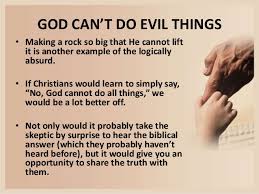Has anyone ever challenged you with the question, “can God make a rock to heavy for him to lift?”, and before you can answer, they say, “see, God isn’t all-powerful/omnipotent as you, as a Christian, contend.” A number of refutations have been posited in dealing with this question, several of which are given in the videos below, which will help to equip the Christian case-maker in addressing this challenge.
Along with the refutations found in the videos, I would like to highlight the refutation of C. S. Lewis, which can be found in his book, The Problem of Pain. In the second chapter of the book, Divine Omnipotence, Lewis defines omnipotence, and helps the reader to understand how omnipotence is applied to ‘all agents,’ including God. Following in the thought and understanding of Thomas Aquinas, “Nothing which implies contradiction falls under the omnipotence of God,” [1] Lewis explains how possible and impossible, as well as self-contradiction, are to be understood when addressing this challenge:
 I will conclude with another insightful statement on the topic, by dear C. S. Lewis:
I will conclude with another insightful statement on the topic, by dear C. S. Lewis:
References
[1] Thomas Aquinas, Summ. Theol., IA Q XXV, Art 4
[2] C. S. Lewis, The Problem of Pain, Chapter 2, Divine Omnipotence, 1940-1996
[3] C.S. Lewis, A Grief Observed, 1961-1996
Can God Make a Rock so Big He Can’t Lift It?-Sean McDowell
Can God Make a Stone So Heavy He Can’t Lift It?-William Lane Craig
